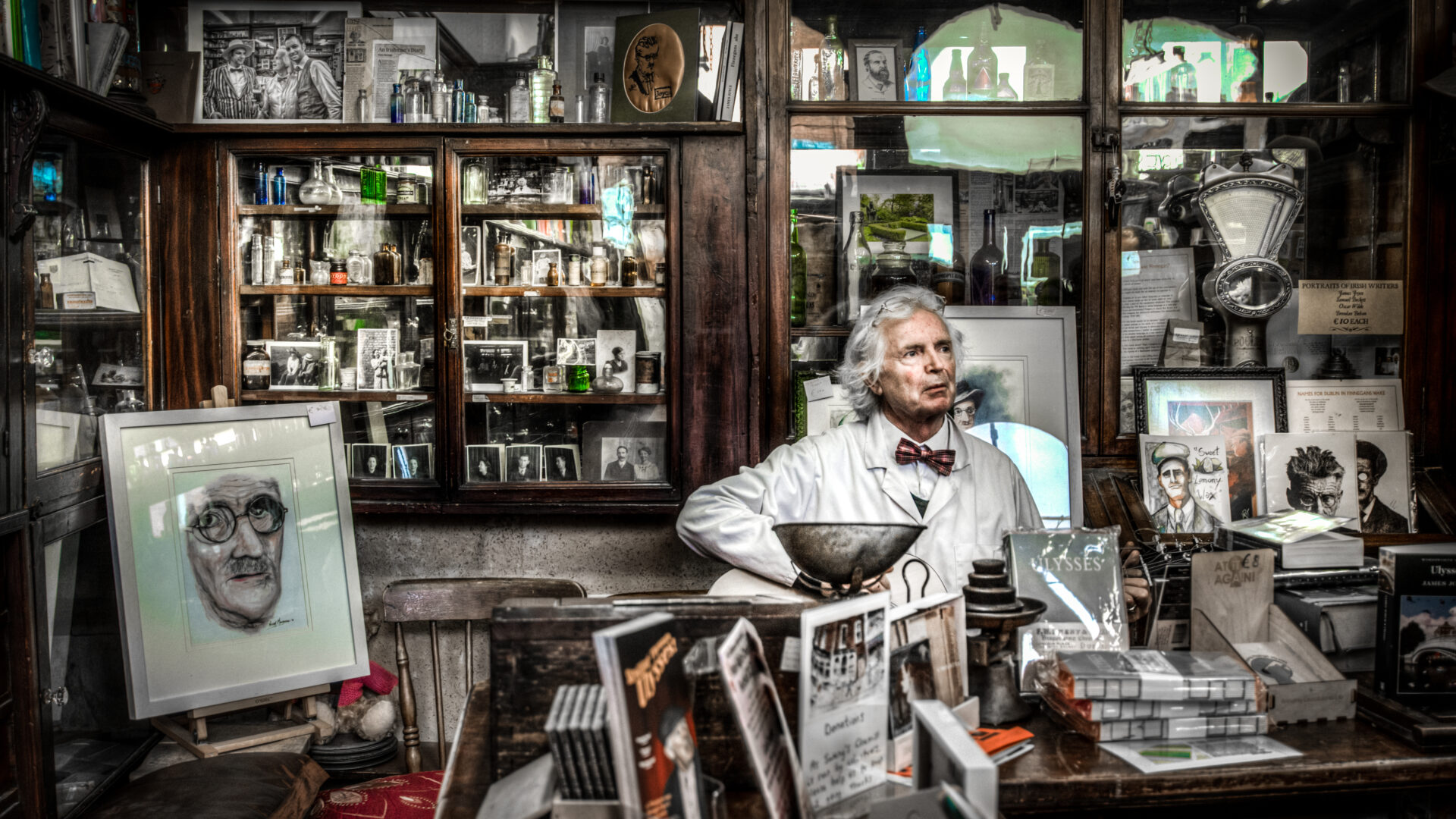There are two ways a writer can become synonymous with their city. (There are probably quite a few, but for the purposes of this post, there are two.)
One is to be so successful and/or talented, capturing your country’s truth with such style, that you make the city famous through the public’s interest in your life.
The second is to be from a city so small that they don’t have much choice but to invest in your name.
I think there is an element of both when it comes to James Joyce and Dublin.
As great as London is, it’s often easier to appreciate from a distance, like a good painting or relationships with extended family. I took myself to Dublin for a few days to get away from the smog and because there are few other places that can boast such a rich literary history, and almost none that show it off so casually.
It’s true that place is important for a writer, but it’s also true that changing places is important. It’s ironic that this is the idea which drew me to Dublin, when so many of its most famous writers left in the same spirit.
Let’s cut back to Joyce. As a disclaimer, I should say that I have never read “Ulysses“ and I have only dipped into “Dubliners.” In spite of this, as an English major it is impossible to escape Joyce, the perfect bohemian figure, traveler and experimenter with the form.
Walking around the city, I realized why. In death, Joyce has gained the power to advertise and decorate literally anything. Here is a list of places where I saw a likeness/poster/sculpture/bust or James Joyce: every pub, parks, cafés, restaurants, launderettes, a garage, a hairdressers, beermats, graffiti, and on and on and on.
A few years ago this might have unsettled me. Squeezing all the life out a dead artist to promote any random business because he’s recognizable and relatively strange-looking seems a bad thing at first glance. An artist should live on through their art, not through their ability to give credence to a back-alley barbershop.
You don’t have to be in Dublin for long to realize that this isn’t the case. It’s not commercialism, but pride.
Dublin is defined not by its architecture or history or attractions, but by its people. To be called a Dubliner does more than let people know where you’re from. It anchors you to a rich history of unrest and oppression, natural beauty and musical charm, and a character of resilience and strong reputation. This reputation, for the most part, comes from its heroes of fiction, poetry and playwriting.
There might seem something dissonant in the fact that some of the city’s most famous children wasted little time in leaving it. Oscar Wilde found himself more at home in the bustling London scene and Samuel Beckett left for Paris and even started writing in French. Joyce himself moved to Paris, too. So what is it about the place that breeds such talent and wit … and desperation to leave?
Let’s go back to the second reason on our short list of ways to become a city’s iconic literary figure. When somewhere is small enough to become famous because of you, it means that it’s probably become too small for you.
This is by no means a negative thing. These talents were certainly worth exporting. Not because Dublin is too small in reputation or opportunity, but because their talent was large. And if opportunity was indeed lacking for these talented individuals, it doesn’t make them traitors when they leave. (Wilde is infamous for retaining nothing of the accent.)
Despite their jet-setting, they never sacrificed anything of their unmistakably Irish verve and humor. No matter where they were in the world, their work contained the raw strangeness and levity that Irish writing, Dublin in particular, is known for.
My time in Dublin has convinced me that, for better or worse, a writer cannot escape their roots. Place is knitted into our skeletons. It informs our judgements, biases and is always waiting to sit there on the opening line of our museum biographies. So make peace with your city, for one day it might celebrate you.
 Josh King received his MFA from Adelphi University in New York, and now lives in the UK. His fiction has been published in BlazeVOX magazine and The Matador Review, and he divides his time between writing articles, plays and drawing comics.
Josh King received his MFA from Adelphi University in New York, and now lives in the UK. His fiction has been published in BlazeVOX magazine and The Matador Review, and he divides his time between writing articles, plays and drawing comics.


0 comments on “James Joyce and the City of Dublin”